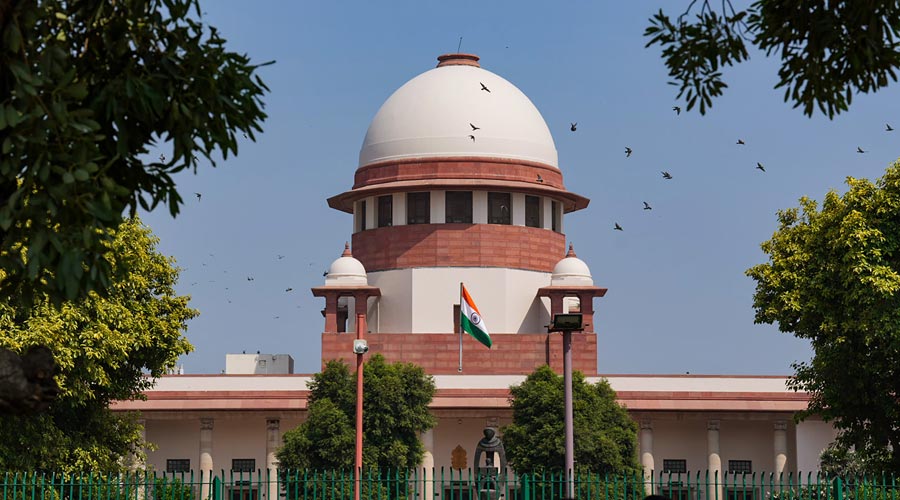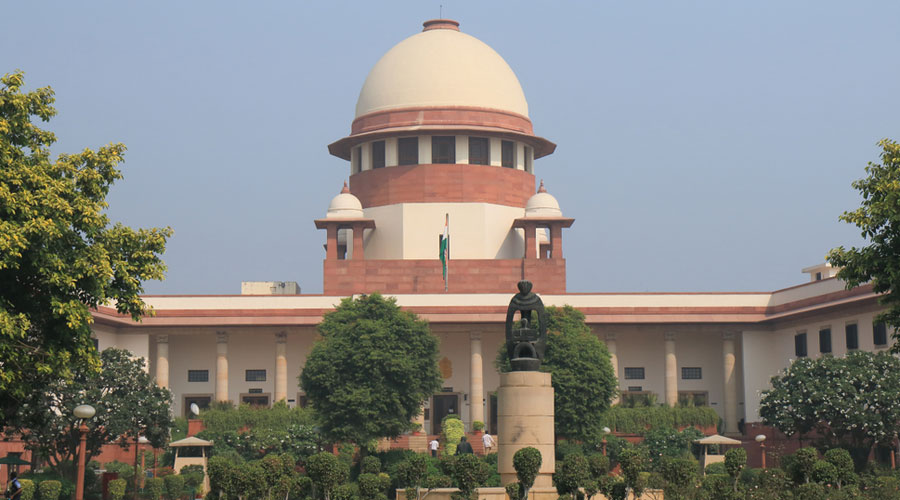The Supreme Court on Friday set the Centre a 10-day deadline to clear the elevation of five judges to the apex court, pending since December 13, while expressing frustration at such chronic delays by saying “things have not been happening for years together”.
It also warned of “unpalatable” orders if files were not cleared soon relating to the transfer of 11 high court judges, whose names have been reiterated by the collegium but stalled by the government.
The sharp comments came amid an escalating conflict between the judiciary and the Centre over recurring delays in government approval for the collegium’s recommendations, and over which of them should have supremacy in judges’ appointments and transfers.
The tenor in which the bench of Justices Sanjay Kishan Kaul and A.S. Oka expressed its mind on Friday made it somewhat awkward for attorney-general R. Venkataramani to defend the Centre.
Venkataramani assured the court that President Droupadi Murmu would issue the warrant of appointments relating to the five judges by Sunday. But as the court was about to record a written order on the five-day assurance, Venkataramani pleaded that this not be recorded in writing.
Justice Kaul then said: “Okay, Mr Attorney, then I am taking your word for the five judges. You said by Sunday the warrants will be issued. But we are giving you a larger leeway of 10 days, because sometimes there are unexpected delays.”
The bench was referring to the apex court collegium’s December 13 recommendation to elevate Justices Pankaj Mithal, Sanjay Karol, P.V. Sanjay Kumar, Ahsanuddin Amanullah and Manoj Misra to the Supreme Court.
The collegium had gone out of its way to re-emphasise these five names on January 31 while recommending two other judges — Allahabad High Court chief justice Rajesh Bindal and his Gujarat counterpart Aravind Kumar — for elevation to the Supreme Court.
In an unusual statement, the collegium had said that the five names recommended on December 13 must be cleared before those recommended on January 31.
This statement came amid a perception in the legal fraternity that the Narendra Modi government had adopted a “pick and choose” policy on judges’ appointments and transfers, thus affecting seniority in the Supreme Court. Seniority is key to determining who becomes Chief Justice of India.
‘Serious’ matter
The bench also took umbrage at the Centre’s delay in clearing the transfers of 11 high court judges, including a chief justice, despite two reiterations by the collegium. Under the rules, even one reiteration ties the Centre’s hands.
Some of these 11 names have been awaiting clearance since last November.
“Don’t let us take a stand that is going to be unpalatable. If transfer orders are not implemented, what do you want us to do? Should we withdraw work from them?” Justice Kaul, second senior-most member of the collegium, said.
“If we (collegium) think somebody should be working in B court instead of A court and you keep this issue pending, it is very serious, more serious than anything else. You will make us take some very difficult decisions.”
He explained: “Deferring transfer orders is a more serious infraction than keeping recommendations for new appointments pending. I can understand about a new appointment, you have something to say, but…. Mr Attorney, don’t let us take a stand which would be very uncomfortable.”
The court’s point seemed to be that since transfers are administrative decisions and do not require any intelligence inputs about a candidate’s credentials, there could be no reason for the government to withhold clearance.
The bench was dealing with separate applications moved by the Bengaluru Advocates Association, Supreme Court Bar Association and the NGO Common Cause challenging the Centre’s blocking of the collegium’s recommendations despite reiterations.


